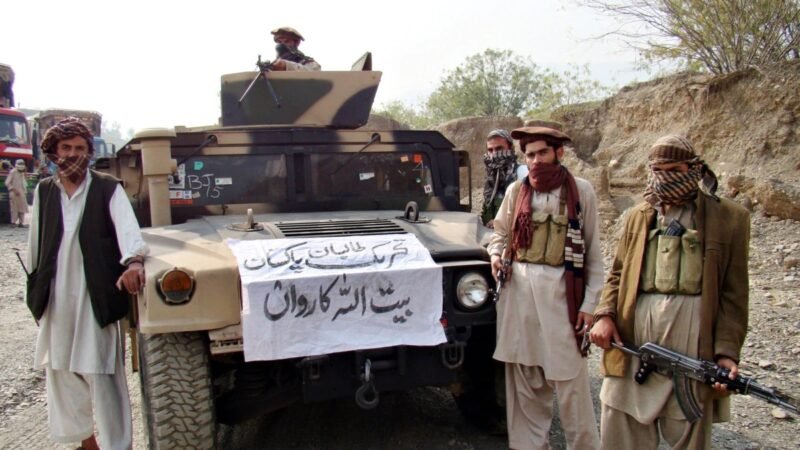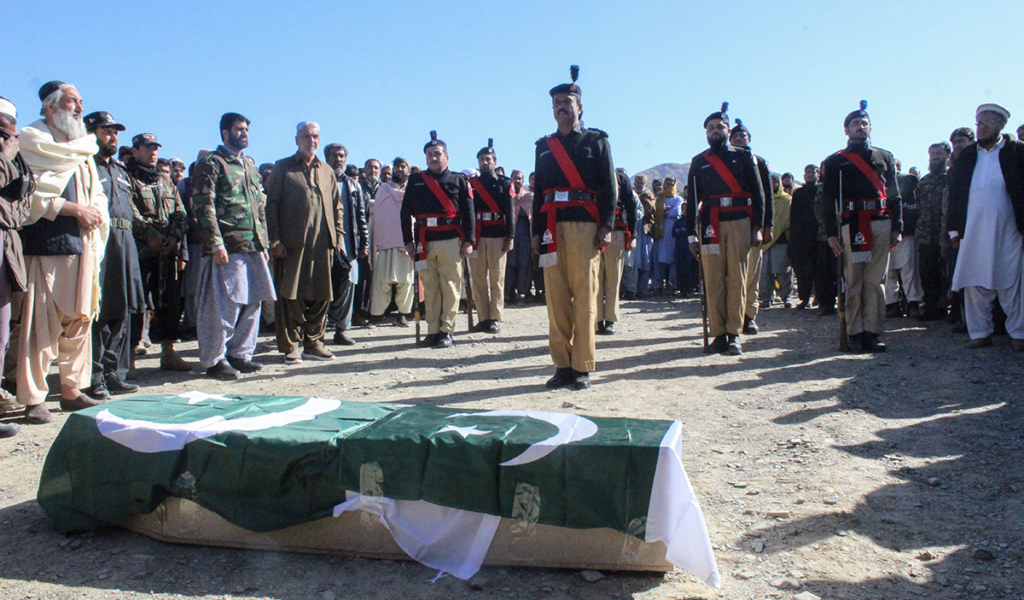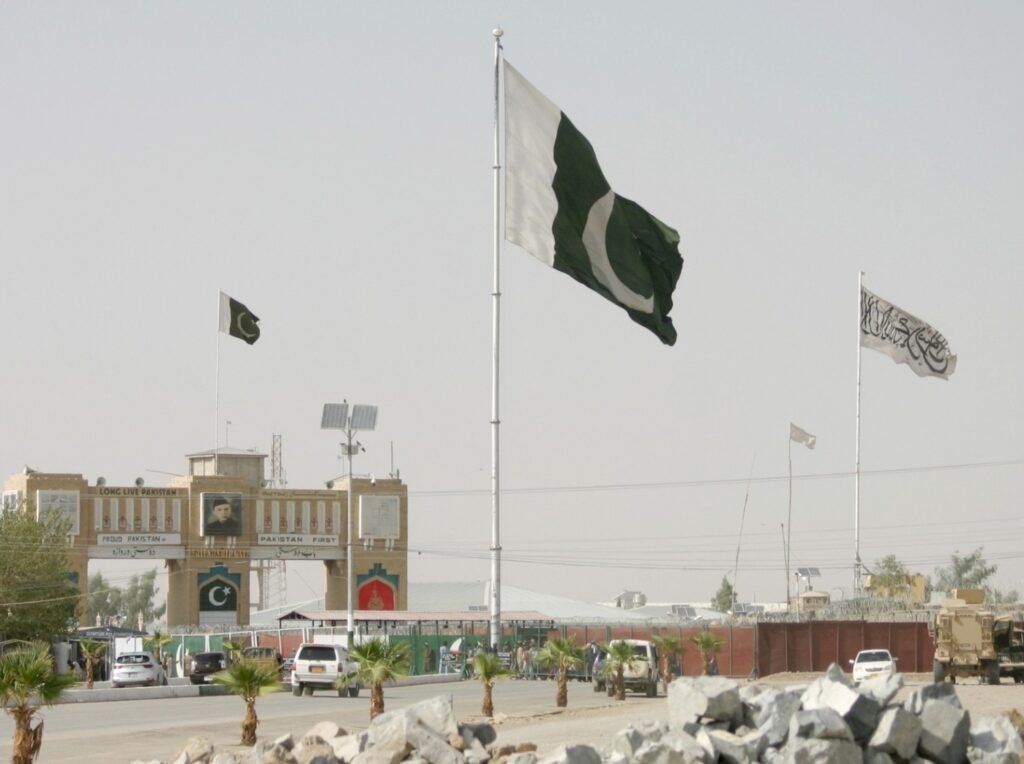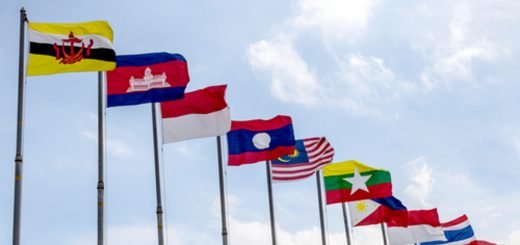Pakistan’s Negotiations with Tehreek-e-Taliban: Heading to Nowhere?

The world witnessed a spectacular turn of events when the Afghan Taliban stormed into the Presidential Palace after the inevitable collapse of the Afghan government which abandoned the citizens in a bid to save their own from the Taliban’s atrocities. This “bloodless” coup came as a surprise to many including the American forces which had anticipated a 3-month interim period for Kabul to fall, which fell in less than 10 days as Afghan National Army offered zero resistance against the takeover. There was indeed a sense of jubilation and achievement for the Afghan Taliban and their Master’s in Rawalpindi – The Pakistan Army- which played a crucial role in bringing the two warring sides to the negotiating table. They had achieved their aim of strategic depth in the region and now had rulers in Afghanistan who were subservient to them. This moment of celebration was brief since the Taliban’s ascent to power functioned as a catalyst for the Tehreek-e-Taliban (TTP) rise in Pakistan.
The TTP operated from their safe havens in Afghanistan and attacked Pakistani law enforcement agencies and a few critical Chinese projects, which have increased in number after the events of August 15th, 2021. The renewed momentum in the insurgency suggests that the majority of the factions within the TTP have managed to set aside their differences and are working together more effectively. TTP’s proven cooperation with the Afghan Taliban has been the principal factor which is determining the potential outcomes in the Af-Pak region. This has demolished the long-held belief held by the authorities in Pakistan that the TTP was aided and abetted by India’s intelligence agency, R&AW, through their consulates spread over Afghanistan in partnership with the Afghan government and thereby creating unrest in the country. TTP also looks up to the Afghan Taliban and has publicly backed their loyalty to Mullah Akhundzada. Because of this, the Afghan Taliban see TTP as a branch of the Taliban on the other side of the Durand Line. As a result, despite the TTP’s violent actions in Pakistan, the Taliban has been hesitant to crack down on the group.

The Government of Pakistan initially sought the intervention of their trusted lieutenants in Afghanistan- the Haqqani network (Sirajuddin Haqqani) – to reach out to TTP after the sudden surge of violence due to the Taliban’s rise to power. This eventually led to a series of negotiations which eventually led to a ceasefire in return for the release of hundreds of TTP fighters languishing in Pakistani jails. This ceasefire remained short-lived as Pakistan was accused of not honouring the commitments it made during the negotiations. After months of hostilities between the two sides, it was announced that both sides were back to the negotiating table in early June this year and had agreed to a ceasefire which was mediated by the Afghan Taliban.
Despite the fact that the negotiations have been kept secret, the “establishment” has been hesitant to declare the goals of the negotiations and its proposal to the TTP. The discussions led by the Corps Commander of Peshawar and the government-sanctioned Jirga have provided solutions such as free passage from Afghanistan, long-term ceasefire, political and financial mainstreaming of the group, etc., but have not yielded promising results because the TTP has been steadfast on its demands of – Rollback of FATA merger, refusal to give up arms, reduction of military troops, and implementation of Sharia in the region.
The major political parties such as the PML-N, PPP, and PTI, among others, have been clueless over their Afghan strategy. Even though former Prime Minister Imran Khan notified the public about the government’s contacts with the TTP when he was in office at the centre, his party has been recently accused of paying extortion money to the TTP in the Khyber Pakhtunkhwa province in exchange for security, and he was seen appealing the TTP to desist from violence, particularly against PTI members, since they were both fundamentally allied against the American state. Leaders like Maulana Fazlur Rahman of JUI-F whose party has been ideologically aligned with the TTP, have not mentioned the name of the group in their speeches, but have indirectly blamed their fighters for creating unrest and deteriorating law and order situation in the Khyber Pakhtunkhwa province. Only leaders of the likes of Ali Wazir (left in jail), Manzoor Pashteen and Mohsin Dawar have been vocal about Taliban’s rise in Pakistan, but these politicians have mostly been against the “establishment”. Political moves in accordance with the calls for the reversal of the FATA merger could prove costly for the political parties in the parliamentary elections, given the historical precedent of a decisive slim majority in the National Assembly and the possibility of forming a government. Therefore, it seems as if political parties are not interested in a solution, but they are shifting responsibility to the “establishment” to come up with a solution to this complex problem.

The Pakistani “establishment” may wish to keep the ceasefire with the TTP in place until a new Army chief is in charge later this year, preferably without making any big concessions. Meanwhile, the situation is destined to change as citizens residing in the affected areas have begun displaying their displeasure over the deteriorating law and order situation in the region, especially in North Waziristan which witnessed protests and lifting of the blockade after government-sanctioned Jirga negotiated for the resolution of their demands within 15 days. The TTP has publicly declared about their deep entrenchment across Pakistan and the recent visuals of their free movement and establishment of check posts in Swat, are sowing seeds of doubt about the seriousness and inability of the Pakistani “establishment” in suppressing TTP’s de-facto ruling in the region. The replacement of the Corps Commander of Peshawar will unquestionably steer the negotiations in a different direction, as the previous rounds, despite having ceasefire arrangements, were unable to stop the frequent assassinations of police personnel by the TTP and its splinter organisations (Hafiz Gul Bahadur group) in the region.
As a result of the United States’ withdrawal from Afghanistan, money in the form of aid has dried up and the CPEC turning around Pakistan’s economy remains a far-fetched idea. With the economy in doldrums and political anarchy on the climb is swiftly fostering a climate conducive to terrorism. There is no denying the TTP’s revival, and the Pakistani government will not budge on the group’s primary demand. The moment has come for Pakistan to adopt a firm and consistent stance toward the group.


















